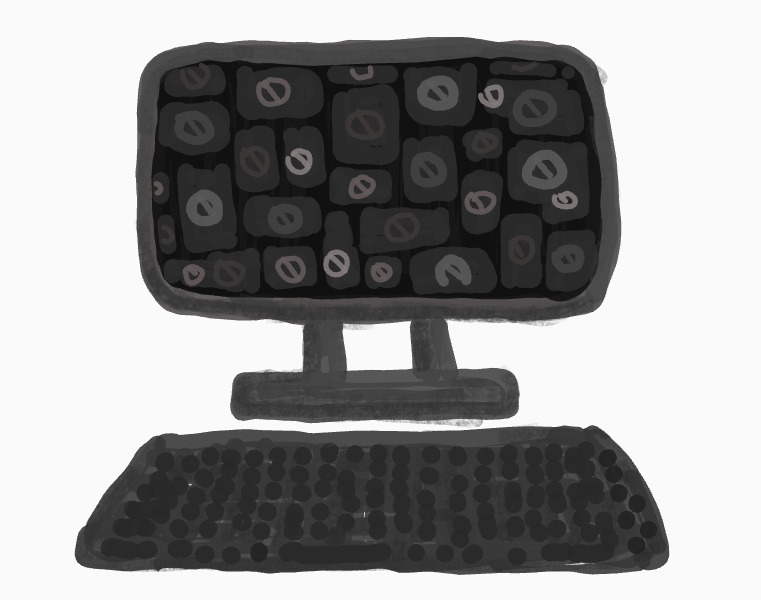Gray Squares and Blue Circles
What’s behind the increased webpage blocking
December 7, 2021
A familiar message pops up on a white screen: “Attackers might be trying to steal your information.”From the American Collegiate Hockey Association to the AP Literature and Composition class Canvas photo, since last year the district has increased the Chromebook filtering system.
Hannah Woodard, senior, notes that, “some pages are inconsistent with when they’re blocked.”
“It’s hard to know what is,” Woodard said, noting how access to Spotify has been changed multiple times. Additionally, the blocking of Discord has made them unable to access the Shorewood robotics server where the team sometimes meets. Instead, they log onto their phone, and work on their computer, with no way to directly screen share.
Woodard usually comes across something that is blocked about once a week. “Usually, I just kind of go to a different computer,” they said. Most often, their classes are not directly impacted, so they will just find a work around.
Eric Caldwell, the Director of Technology at the Shoreline School District explained the nuances behind the new webpage blocking on the school Chromebooks.
The 2021-22 edition filters add two big changes, one is increasingly sensitive and one works off-campus.
The district is required to block anything that is outlined under district form 2314F, a user agreement form. In this form, the user agrees never to participate in the “downloading, installation and use of games, audio files, video files or other applications.” Additionally, the user agrees not to cyberbully, hack, or post information “that could endanger others.” As Caldwell explains, the district has a “right to filter any resources that would be restricted” in this document.
District form 2314F says that “students must take responsibility for his or her use of the network and Internet and avoid objectionable sites.” It’s up to students to avoid what is filtered.
Additionally, there is the Children’s Internet Protection Act (CIPA), a federal law dictating internet safety at school. They state that they “must [monitor] the online activities of minors.” Caldwell explains, “any content that would be considered obscene, child pornography, or harmful to minors” falls under the CIPA.
Every year, Caldwell has to certify that the district is following these procedures or the district will lose “funding that highly subsidizes our Internet connection, district wireless infrastructure and network backbone.”
In short: CIPA requirements have to be followed or the district risks losing federal funding.
So, does the American Collegiate Hockey Association count as child pornography? No. But, it comes down to the details. In order to secure the network, any site that can “provide tools that can be used to defeat district security and filtering system” must be blocked. Caldwell explains that it’s not just student security, but securing the network as well. Sometimes, a part of a website “will not work because they are referencing a third party system that is blocked.” Caldwell is working to fix this.
Caldwell knows that most students never try to breach the distinct internet security “but we need to safeguard for all students and threats while still allowing reasonable access.” But, many students express being unable to access their portions of their classwork, having to work around the filters for school.
A Running Start Student at Shoreline Community College (SCC), Woodard has additional issues accessing their college classes on their Chromebook. “Sometimes my [Running Start] teacher will try and put images in her canvas messages,” they note, “and I just can’t see the image.”
“Before I got my [SCC] class I was very worried I would have major struggles using it on my Chromebook,” they highlight.
Caldwell confirms that teachers have no way of knowing what is blocked on student’s computers. Teachers just have to ask the students.
Occasionally, teachers can override the filter. If it is a website, Caldwell explains that teachers “can always enter a ticket in the system to request a site be unblocked.”
The district knows that filters do not keep students 100 percent safe online. A lot is left up to the individual. But, despite this, the district still needs the filters. It’s a matter of regulations. “We try to maintain a balance,” Caldwell said.




